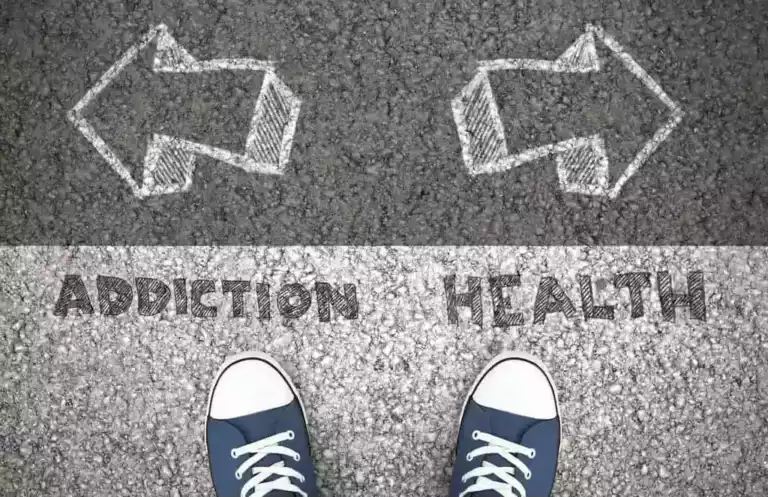Diet for Recovering Alcoholics

Dairy products can be high in fat, but skim milk, yogurt, butter and some cheeses can be a good way to supplement your diet. Vegetables are packed with critical vitamins and nutrients, so getting plenty of leafy greens is always encouraged. Vegetables don’t have to be boring — with sauces, dressings and creative preparation methods like roasting, you can turn what seems like something bland and boring into a delicious meal. There hasn’t been a lot of research on the role of nutritional therapy in recovery from substance use yet. That said, some studies have found that it can boost your chances for a successful recovery.
Vitamins for Alcohol Detox

Further, it damages the liver and other digestive organs while also disrupting gut bacteria, which impairs the absorption of nutrients. The nutritional deficiencies that result from alcohol abuse can worsen anxiety and cravings, making detox and sobriety more difficult. Professional guidance best diet for recovering alcoholic from dietitians and support groups can be instrumental in creating a tailored nutrition plan that addresses both physical and mental health needs during alcohol recovery. Nutrition plays a pivotal role in the recovery process for individuals struggling with alcohol use disorders.
Recovering Alcoholic Diet and Nutrition Tips
This spice is high in fiber, protein, potassium, manganese, folate, and vitamins A, C, E, and K. Buy fresh cayenne peppers whenever possible, since fresh, whole peppers are often more nutrient-dense than dried peppers or ground cayenne seasoning. Add cayenne peppers to soups, stews, and sauces, or sprinkle the seasoning over your favorite dishes. Prepare peas, sweet potatoes, and pumpkin in a steamer to retain the nutrients in these foods, or make vegetable chilis with a variety of beans. When consuming breads and pastas, stick to brands made with whole grains. Dairy products are good sources of both calcium and vitamin A, promoting strong, healthy bones and teeth as well as healthy digestion.
Nutritional Therapy for Alcohol Addiction
- Omega-3 fatty acids also have anti-inflammatory and antioxidant effects, which protect the brain from harm and aging.
- As you’ve likely noticed, alcohol can provide temporary feelings of happiness and relaxation.
- It’s common to begin craving sweets and other unhealthy foods when you give up alcohol.
The helpline at AddictionResource.net is available 24/7 to discuss the treatment needs of yourself or a loved one. This helpline is answered by Legacy Healing Center, an addiction treatment provider with treatment facilities in California, Florida, Ohio, and New Jersey. Too much alcohol can cause inflammation in your stomach lining and pancreas.
- Drinking too much can lead to severe nutrient depletion, creating symptoms that can make alcohol detox and recovery more difficult and permanently affect your health.
- Eat plenty of fruits and vegetables, including citrus fruits, strawberries, bell peppers, tomatoes, and cruciferous vegetables, and consider taking a vitamin C supplement.
- Nutrition can also help us prevent or delay the start of brain diseases, such as Alzheimer’s and Parkinson’s, which are characterized by the loss of neurons and connections.
- Without these key nutrients, you not only risk succumbing to various physical ailments, but you can also struggle to think clearly and act quickly.
- As previously mentioned, insufficient amounts of zinc can negatively impact your skin and appetite and can also reduce your sex drive.
However, detox often doesn’t fully address the foods and nutrients you’ll need on your recovery journey. Often, too, you’ll receive the best in nutrition while in a treatment program, but I’ve seen many people return from treatment and then struggle to maintain a healthy diet suitable for alcohol recovery. The liver’s remarkable ability to regenerate is significantly influenced by nutrition, especially in the context of recovery from alcohol-induced damage. Proper nutrition is not only essential for maintaining liver health but also plays a pivotal role in the liver’s repair process. Consuming a balanced diet rich in antioxidants, anti-inflammatory foods, lean proteins, omega-3 fatty acids, and B vitamins is crucial for supporting liver function and facilitating repair.

Alcohol detox can be challenging, especially when you’re so far in the booze that you find yourself craving every sip and shot all day long. One of the most effective ways to complement your alcohol addiction recovery is with the aid of an alcohol cleanse diet. If possible, try to avoid foods that are highly processed or low on nutrients.
What Foods to Eat During a Drug or Alcohol Detox

We strive to create content that is clear, concise, and easy to understand. Recovery patients should stay away from certain foods because of their ability to crash a good mood or reinforce pathways to addiction. Feeling nauseous, anxious, and generally experiencing a loss of appetite during the first few days of detoxing from alcohol is normal. Once addiction has forced changes in the brain, however, it damages neuroplasticity and makes it much harder to adapt to sobriety. Additionally, the adaptations that the brain develops disrupt crucial neuropathways, decreasing neurotransmitters and their ability to move normally through the brain.
- Call our helpline today to learn more about alcohol detox options and how to find a treatment program for alcohol abuse that’s right for you.
- The rehab staff controls all aspects of diet and food options to establish a successful recovery.
- Use these tips, along with a consultation with your personal healthcare provider or dietician for more personalized guidance on this matter.
- Kombucha is a fizzy, fermented tea created with yeast and bacteria cultures that can help you improve your gut health.
Whole Grains
If you’re looking for alcohol detox and substance abuse treatment options, we may be able to help. At Acqua Recovery, our nutrition therapy, led by our dedicated Chef Kyria Cropper, goes beyond meals – it’s a culinary journey infused with love and care. Kyria crafts every meal from scratch, ensuring each bite is a gesture of support and nourishment. Her commitment extends to meeting the diverse nutrition needs of clients, even accommodating specific dietary restrictions. Beyond the plate, Kyria hosts engaging weekly groups focusing on nutrition education, food preparation, and cultivating healthy eating habits. Her creativity blossoms in the kitchen, incorporating fresh produce from our garden.